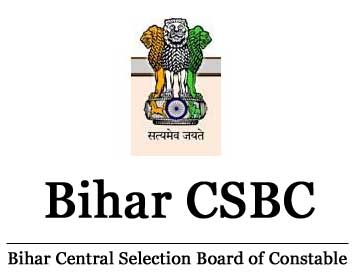(Syllabus) Syllabus for Bihar Police Constable Exam

(Syllabus) Syllabus for Bihar Police Constable Exam
Syllabus for Bihar Police Constable Exam :
गद्य खण्ड:गद्य खण्ड:-
1. प्रेमचंद पूस की रात (कहानी)
2. रामचंद्र शुक्ल कविता की परख (वैचारिक निबंध)
3. कुमार गंधर्व भारतीय गायीकाओं में बेजोड़: लता मंगेषकर (व्यक्तिपरक निबंध)
4. विष्णुभट गोडसे वरसईकर आॅंखों देखा गदर (संस्मरण)
5. सत्यजित राय चलत्रित (फिल्म पर निबंध)
6. भोला पासवान शास्त्री मेरी वियतनाम यात्रा (यात्रा वृतांत)
7. कृष्णा सोबती सिक्का बदल गया (कहानी)
8. फणीष्वरनाथ रेणु उतरी स्वपन परि, हरी क्रांति (रिर्पोताज)
9. हरिशंकर परसाई एक दीक्षांत भाषण (व्यंग्य)
10. ओदोलेन स्मेकल सूर्य (सांस्कृतिक निबंध)
11. मेहरून्निसा परवेज भोगे हुए दिन (कहानी)
12. कृष्ण कुमार बुनियादी षिक्षा (भाषण)
13. चंद्रधर शर्मा गुलेरी
14. बाल कृष्ण भट्ट
15. षिवपुजन सहाय
16. रामधारी सिंह दिनकर
17. विष्णु प्रभाकर
18. अज्ञेय
19. जगदीषचंद्र माथुर
20. मोहन राकेष
21. नामवर सिंह
22. जय प्रकाष नारायण
23. पद्मा सचदेव
24. दलित आत्मकथा
25. उदय प्रकाष
26. पंकज विष्ट
27. जे. कृष्ण मूर्ति
पद्यखण्ड:खण्ड:खण्ड:-
1. विद्यापति चानन भेल विषम सर रे, सरस बसंत समय भल पाओल
2. कबीर संतो देखत जग बौराना, हो बलैया कब
देखौंगी तोहि
3. मीराबाई जो तुम तोड़ो पिया, मैं गिरधर के घर जाऊॅं
4. सहजोबाई मुकुट लटक अटकी मन माही, राम तजूॅं पै गुरू न बिसारूॅं
5. भारतेन्दु हरिषचन्द्र भारत दुर्दषा
6. मैथिलीषरण गुप्त झंकार
7. सूर्यकांत त्रिपाठी ‘निराला’ तोड़ती पत्थर
8. नागार्जुन बहुत दिनों के बाद
9. त्रिलोचन गालिब (साॅनेट)
10. केदारनाथ सिंह जगरनाथ
11. नरेष सक्सेना पृथ्वी
12. अरूण कमल मातृभूमि
13. जायसी
14. सूरदास
15. नाभादास
16. ताज बीबी / चांद बीबी
17. घनानंद
18. भूषण
19. सुभद्रा कुमारी चैहान
2ENGLISH
1. Preparing Note and writing summary of a given passage
- Identifying Central / Main Point and supporting details etc. and perceiving overall meaning and organization.
- The texts should deal with sociopolitical and cultural issues along with the principals enshrined in the constitution.
2. Comprehension of unseen factual / imaginative passages (Short and long question answer items)
- Developing the skills of reasoning, drawing inferences.
3. Reading of tales / short stories / short plays
- Reading with understanding and imbibing virtues.
- Bihar writers, Indian writers, Commonwealth writers and native writers of English.
4. Reading of informative pieces / essays
- Read with understanding and respond effectively in writing.
- On Environment, Economics, Sports, Science, health and hygiene.
- Adolescence, Human Values and human rights, Cultural diversity and unity etc.
5. Reading poems for enjoyment and understanding
- Enjoying and understanding poems and imbibing human values and / or encountering truth.
- World fame poets (Both native and non native poets of English), Indian Poets, Bihari Poets.
6. Free Composition on familiar / contemporary issues
- Communicative skills in writing
- Notices, memorandum, formal and informal letters, application etc.
7. Various registers of English
- Build Communicative competences in various registers of English
- Support with standard pieces of writing.
8. Translation from mother tongue into English
- Ability to translate from mother tongue into English and vice versa.
- Wide ranging topics covering different aspects of life including great personalities.
9. Grammatical items and structures:
(a) The use of different Tense forms for different kinds of narration (e.g.media commentaries, report, programmes, etc.
(b) Reported speech in extended text.
(c) The use of passive forms in scientific and innovative writing.
(d) Converting one kind of structures as well as other items to exemplify stylistic variations in different discourses.
(e) Modal auxiliaries – Uses based on semantic considerations.
(f) Phrases and idioms
(g) Analysis.
(h) Converting one kind of sentence / clause into a different kind of structures as well as other items to exemplify stylistic variations in different discourses.
(i) Synthesis.
10. Precis of a given passage
- Identifying central / main point and supporting details etc. and perceiving overall meaning and organization.
- Informative pieces on contemporary burning issues.
11. Comprehension of unseen imaginative passages / graph / chart / table (Short and long question answer items)
- Developing the skills of reasoning, drawing inferences.
- The texts should deal with sociopolitical and cultural issues along with the principals enshrined in the constitution.
12. Reading of tales / short stories / short plays
- Reading with understanding and imbibing virtues.
- Indian writers, Bihar writers, common wealth writers, native and other nonnative writers of English.
13. Reading of Informative Pieces / essays
- Reading with understanding and acquiring general knowledge of practical value
- On Reproductive heaslth, Art and culture, Mass media, Travel and tourism, Peace and harmony etc.
14. Reading poems for enjoyment and understanding
- Enjoying and understanding poems and imbibing human values and / or encountering truth.
- Bihari poets, Indian poets, Commonwealth poets, native and other non native English poets.
15. Free Composition on familiar / contemporary issues
- Communicative skills in writing .
- Reports, message, CVs, e-mail, formal and informal.
16. Various registers of English (Contd.)
- Build communicative competences in various registers of English.
- Support with standard pieces of writing.
17. Translation from mother tongue into English
- Ability to translate from mother tongue into English and vice versa.
- Informative and inspiring pieces.


